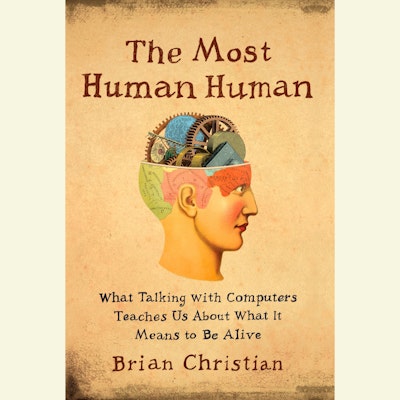- Published: 27 June 2011
- ISBN: 9780141971551
- Imprint: Penguin eBooks
- Format: EBook
- Pages: 320
The Most Human Human
What Artificial Intelligence Teaches Us About Being Alive
- Published: 27 June 2011
- ISBN: 9780141971551
- Imprint: Penguin eBooks
- Format: EBook
- Pages: 320
An eye-opening inquest into human imagination, thought, conversation, love and deception
David Eagleman, author of Sum
Strange, fertile and sometimes beautiful ... takes both the deep limitations and halting progress of artificial intelligence as an occasion for thinking about the most human activity
Matthew Crawford, author of The Case for Working with Your Hands
Immensely ambitious and bold, intellectually provocative, while at the same time entertaining and witty - a delightful book about how to live a meaningful, thriving life
Alan Lightman, author of Einstein's Dreams
Such an important book ... Brian Christian takes on this very weighty task, and somehow makes it fun
Brian Shenk, author of The Genius in all of Us
Fast-paced, witty, and thoroughly winning ... investigates the nature of human interactions, the meaning of language, and the essence of what sets us apart from machines ... fabulous
Publishers Weekly
An irreverent picaresque ... What Christian learns along the way is that if machines win the imitation game as often as they do, it's not because they're getting better at acting human; it's because we're getting worse ... An authentic son of Frost, he learns by going where he has to go, and in doing so proves that both he and his book deserve their title
The New York Times
Absorbing ... Christian cleverly suggests that the Turing Test not only tells us how smart computers are but also teaches us about ourselves. ... covers a great deal of ground with admirable clarity but with a lightness of touch ... has a real knack for summing up key ideas by applying them to real-life situations
Julian Baggini, Wall Street Journal


